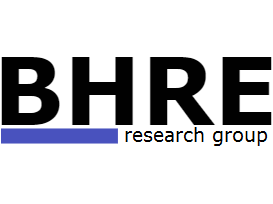The latest episode of the Better World Interview series features Olga Martin-Ortega, Head of Natural Resources and Just Transition at the Business & Human Rights Resource Centre. Olga talks to Net Zero Investor about a just transition - how we can move towards a more sustainable economy in a way that is fair to everyone.
Olga also discusses the role of asset owners in helping to drive positive change through a just transition.
CCLA’s Better World Interview series, in collaboration with Net Zero Investor, features leading voices on climate change, its challenges, and the actions we need to take.
Watch the full interview here: Better World Series: Interview with Olga Martin-Ortega | CCLA
#esg #betterworld #sustainableinvesting #stewardship #cop28
NEW- Transparency in Supply Chains- Modern Slavery Reporting of Higher Education Institutions
/The BHRE has published its new Report on Higher Education Institutions’ compliance with their obligations to produce a Modern Slavery Statement under the UK Modern Slavery Act 2015. This new report, authored by Olga Martin-Ortega and Anna Gorna covers the reporting undertaken by HEI since our previous two reports which focused on the first two years of reporting of 2015/2016 and 2016/2017. Since the beginning of modern slavery reporting under TISC, a total of 142 HEIs have published a modern slavery statement, which remain accessible online. In our research, we have identified a total of 165 HEI which have engaged with the reporting exercise.
With a limited number institution keeping a historical record of their previous modern slavery statements, which is further discussed below, our research focuses on the most recent statement available, mainly covering the 2020/2021 and 2021/2022 reporting periods. This Research Report has analysed 142 statements from HEIs publicly published by September 2022. All the statements found and analysed are listed in Annex I.
In this report, as in our previous ones, we reflect on the quality of the statements, analyse compliance with the formal requirements of the law and, finally, analyses the substantive content that HEIs disclose in their statements to highlight good practice and encourage improvement.
As this Report highlights, HEIs continue to make progress in assuming their responsibility to combat on modern slavery in their supply chains and be transparent about it. Reporting frequency and quality of the statements remain high. With this research report, we are looking to identify the new and innovative ways in which HEIs engage in modern slavery due diligence, having moved passed the learning period that characterised the first years of reporting. It also highlights some of the deficiencies which the sector should address.
Organisations now have increased resources to support their responsibilities, including the new Modern Slavery Statement Registry, where companies and public bodies can add their statements to be more easily accessible and the Modern Slavery Assessment Tool (MSAT), provided by the government as an identification and management tool to help public sector organisations work in partnership with suppliers, and which public sector organisations are encouraged to use.
In Annex II we have included an updated Aide Memoire to support organisations in their sustained journey towards being part of the solution to modern slavery in supply chains, rather than one more element in the long chain that perpetuates the abuse of those who produce the products they purchase and provide the services they contract. We hope this Research Report will further assist HEIs in their journey to enhance their practices on combatting modern slavery in their supply chain and report appropriately on it.
NEW- Local Authorities' reporting under the Modern Slavery Act
/Olga Martin-Ortega and Anna Gorna, UK Modern Slavery Act Transparency in Supply Chains: Reporting by Local Authorities, BHRE Research Series. Report No. 5, October 2022.
We have produced a new report analysing Local Authorities Moder Slavery Statements. In this latest report in the BHRE Research Series, Anna Gorna and Olga Martin-Ortega analyse the progress in transparency reporting by local authorities under the UK Modern Slavery Act (2015) (MSA). As in our previous reports, we provide in depth qualitative analysis of modern slavery reporting by public bodies on their efforts to combat modern slavery and human trafficking in their supply chains since the MSA Transparency in Supply Chains Provision (TISC) (Section 54), entered into force on 29th October 2015. This research report covers the Modern Slavery Act (MSA) reporting periods for the financial years 2020/2021 and 2021/2022. During this period, local authorities had to simultaneously cope with the Covid-19 pandemic and its various impacts, some of which we explore in relation to modern slavery reporting later in this report.
Our first research report on local authorities covered the reporting periods corresponding 2015/2016 and 2016/2017 financial years. The second report covered the years 2017/2018, 2018/2019 and 2019/2020. Over the years since the implementation of the modern Slavery Act 2015, a total of 178 Councils have published a modern slavery statement which remain accessible online, out of 398 in the entirety of the UK, whether individual or jointly written.
Whilst not mandated by law, a significant number of local authorities in the UK has have chosen to report under the MSA, exposing themselves to scrutiny, embarking in challenging learning processes to develop due diligence in their decision making when purchasing and contracting goods, services and works, and providing national and international leadership in sustainable and socially responsible practices. As our report shows, local authorities are becoming increasingly aware of their responsibilities and opportunities to influence working conditions in their supply chains, even if there are still important changes that need to be done in both the way they pursue their procurement and they report on their actions. This is especially urgent as the next review of the MSA will extend S.54 of the MSA to public bodies, including local authorities, with a budget threshold of £36 million or more in England and Wales.




